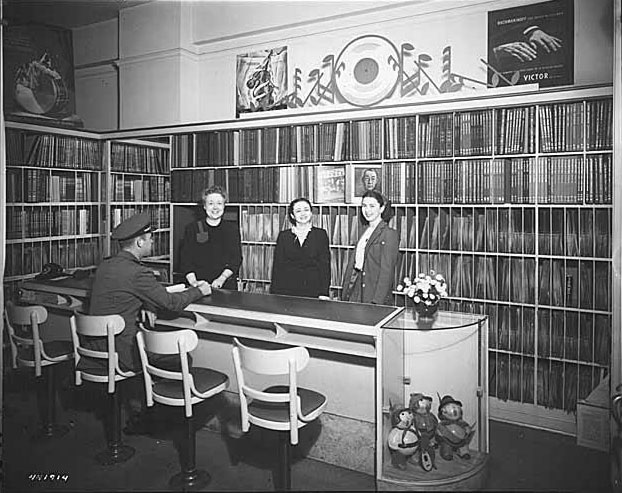Return to KRAB Audio Archives main menu
The KRAB Audio Archive
Miscellaneous music programs - 1960s
Classical, Contemporary, Ethnic, Jazz, Electronic, Traditional, Blues, Baroque, Early
Go to KRAB music programming of the |
|||||
Here you will find samples, some complete shows, many partial recordings, of music programs heard on KRAB, listed in rough chronological order. Where we have found multiple recordings of a series of programs, they have been placed in their own pages, which are accessible through the Audio Archives main menu.
Problems listening, or comments? Please let us know. E-mail archive@krabarchive.com
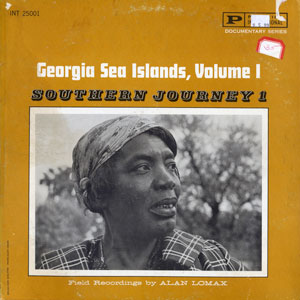 |
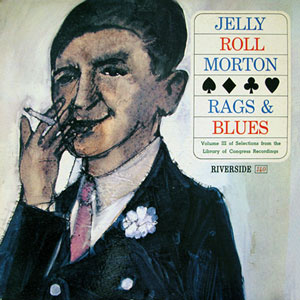 |
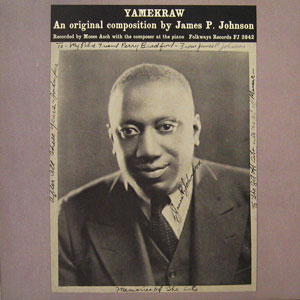 |
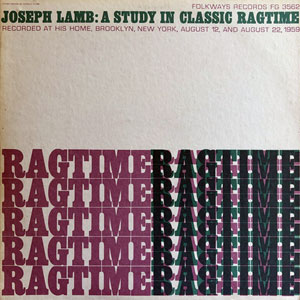 |
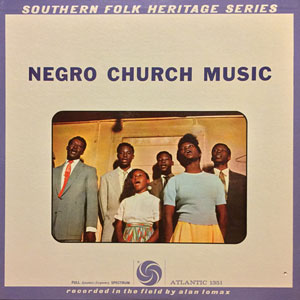 |
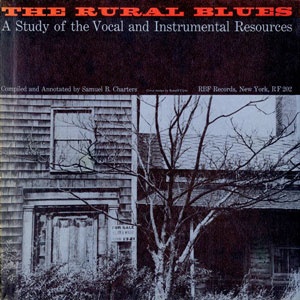 |
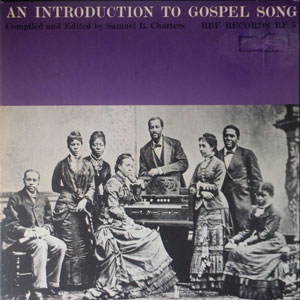 |
KRAB's American Folksong Festival - 1963 or 1964
About 70 minutes into this program Jeremy Lansman takes over the announcing and tells us "This is our big folksong festival, American folksong festival on KRAB, just the start, and our armload of records has arrived."
It appears the records came from Folkways, and a few other labels. We have identifed the records and the selections played. This must have been in 1963 or 1964, as Lorenzo was building the record library. The first announcer heard is Judy Brow. After her, Lorenzo takes the microphone, and Jeremy comes last.
This recording was made off the air.
![]() Listen now - KRAB's American Folksong Festival - 1963 or 1964 (100:18)
Listen now - KRAB's American Folksong Festival - 1963 or 1964 (100:18)
Recording courtesy Linda and Leonard Good, LG0028
Deleted Records with Professor Jonathan Gallant - KRAB 1963-1967
DELETED AND FOREIGN RECORDS. J Gallant introduces several obscure compositions, including:
Big Little Willie Blind: The RNA Blues
G. D. Diasphoro: Concerto for Tabla Rasa
Little Mamma Big: My Baby's Done Gone to the NIMH
Sir Rawl Furbelow: The Faeries Twit Their Little Hornes
Russian (anon): The NKVD Fighting Song
When not chasing genes around a lab or commenting on the Greater Seattle organization's pursuit of significance, Professor Jonathan Gallant might be found hosting a program of LP's that had been abandoned by their publishers, but that he had rescued from various Seattle dustbins. On a couple of occasions the program was even titled "From the Dustbin". "Deleted Records" first aired Jan 4, 1963, a week before the first KRAB program guide appeared.
From Aug 1964 until Nov 1965 the program was hosted by Richard Frahm and the title changed to "Deleted and Foreign Records". When Jon returned he kept the name, with occasional variations.
 The label and tape box appear to have become separated long ago, so we do not have a date for this particular recording.
The label and tape box appear to have become separated long ago, so we do not have a date for this particular recording.
![]() Listen now - Deleted Records with Jonathan Gallant - KRAB 1963-1967 (57:05)
Listen now - Deleted Records with Jonathan Gallant - KRAB 1963-1967 (57:05)
Recording courtesy Jack Straw Foundation, JSF M1510
Facade, An Entertainment, Dame Edith Sitwell and William Walton - KRAB Sep 29, 1964
FACADE with Dame Edith Sitwell. Miss Sitwell reads her poems with the original music of William Walton (written when he was 19). At the first performance of this work, in the early 20s, Noel Coward was so shocked that he left in the middle.
Click here to read the text of (some of) the poems. (LiederNet Archive)
Recording courtesy Linda and Leonard Good, LG00112
"Can all you bongo-ists hear me out there?" - Three by Henry Jacobs, 1965
Beginning in the early 1950's, Henry Jacobs brought a sly wit and a kind of slapstick Zen to the production of electronic and experimental audio compositions. The forms and themes of these compositions, almost always manipulating sound with new uses of technology, include interview with fictitious characters, exploration of formats of educational radio programs about ethnic music, montage, sound effects, and social and philosophical commentary. Mix in a little Dada, and it became impossible for the listener to sort the seriously absurd from the absurdly serious.
There is something about Jacobs' productions that make me wonder what influence he may have had on a couple of other Bay area radio jokesters, Jim Coyle and Mal Sharpe, whom I used to listen to on KGO during the mid 1960's.
![]() Listen now - Three by Henry Jacobs
Listen now - Three by Henry Jacobs
Umdagumsubudu, KRAB Mar 3, 1965 (7:50)
Although this seems to have been later credited to Alan Watts, I recollect a 7" 45 floating around the doughnut shop with Umdagumsubudu on one side and with the credit to Henry Jacobs, and that is also how it was credited in program guide number 56.
Professor Irwin Corey interviewed by Henry Jacobs, KRAB Apr 20, 1965 (26:50)
Corey's rambling non-sequiturs were made for Jacobs' straight man. A re-mastered, and complete, version of the interview is available directly from Irwin Corey's web site. According to one source, if you visit New York, you may find him hawking CD's on the street. Be sure to get an autographed copy.
Recording collection of C Reinsch
 La Bomba, a Mexican Dance, KRAB Sep 29, 1965 (31:40) - While many, if not most, of Jacobs' programs appeared first on KPFA, I cannot find any indication of La Bomba being broadcast anywhere except at KRAB. That it has not reappeared on any of the recent compilations makes me wonder if the master was destroyed in a 1995 fire. La Bomba was created somewhere between Dec 1963 and Sep 1965.
La Bomba, a Mexican Dance, KRAB Sep 29, 1965 (31:40) - While many, if not most, of Jacobs' programs appeared first on KPFA, I cannot find any indication of La Bomba being broadcast anywhere except at KRAB. That it has not reappeared on any of the recent compilations makes me wonder if the master was destroyed in a 1995 fire. La Bomba was created somewhere between Dec 1963 and Sep 1965.
Recording courtesy Nancy Keith
If you are interested in hearing more of Henry Jacobs, take a look at John Whiting's web site where you will find a Conversation beween Whiting and Jacobs recorded in 1994 as well as of productions by Jacobs. There are also albums that have been re-released by Smithsonian Folkways and Important Records, and an article and interview at Smithsonian.
Steve Lalor and Group with a LIVE concert from the Doughnut Shop - KRAB Mar 12, 1965
Here is "Monte Curlew and the Rhythm Blossoms", with Steve Lalor, Danny O'Keefe, David Brooks, and Larry Van Over, and a bunch of others packed into the studio. It seems Lorenzo Milam engineered, wearing his engineer's cap (as pictured on the Richard AC Greene page. Lorenzo's scrawl is unmistakable on the label of tape 2. On Tape 3 David Cutler writes "Might be interesting as fill in place of records."
Tape 1 of 3 is missing, but what we have includes the following:
Looking Glass
After You're Gone (Hey baby)
Diamond Joe
Mean Mother Woman
?
Baby, What You Want Me To Do
The Look of Love
Steel Rail Blues
Parchman Farm (Devil Got My Woman)
Recording courtesy of the Jack Straw Foundation, JSF inv M0304 and M0305
Folk Music with Rolf Cahn presents Reverend Overstreet at The Cabale - Rec May 19, 1963; KRAB Dec 10, 1965
Folk Music: Rolf Cahn presents Reverend Louis Overstreet. KPFA
Well, the brief description above doesn't tell you much except it is "folk music". Rolf Cahn was a Jewish refugee from Nazi Germany who enlisted and served in the US Army during the war and also played and taught classical, flamenco, and folk guitar (there are classified ads in the KPFA folios for his teaching services). The Cabale, at 2504 San Pablo Avenue in Berkeley, was a folk club founded in late 1962 by Rolf Cahn, Debbie Green, Howard Ziehm, and Chandler A. Laughlin III.
From Ernest Lowe: "Rolf did many folk, blues, and flamenco shows on KPFA in the early 60s, as well as a live series from his Berkeley club, The Cabal. I was his producer for most of this time."
Opening Jan 4, 1963, The Cabale continued, with eight name changes, into the early 1970's. Rolf Cahn appears in KPFA folios from at least 1949 to 1964, and in the summer of 1963 started doing live shows from The Cabale. This program was recorded at The Cabale the month before the live series started.
Rolf's shows were also carried on KRAB. Although most guides from 1963 and 1964 are missing, guide number 25, Dec 1963, describes "Folk Music with Rolf Cahn" as a "continuing series", and he is listed regularly from Nov 1965 until Apr 1966.
The schedule of the 1963 Monterey Folk Festival has Reverend Louis Overstreet and his four sons performing the afternnon of May 19, 1963. Later that night they did the show at The Cabale. Via email, Chris Strachwitz, founder of Arhoolie Records, writes "I recorded Rev. Overstreet at the Cabale where he played at Rolf's invitation - after his gig at the Monterey Folk Festival." Strachwitz had previously (Dec 1962) recorded Overstreet in Phoenix, AZ, and published portions of that session as Arhoolie's fourteenth release, F1014 - "An Evening with Rev Louis Overstreet".
Rolf Cahn passed away in 1994. For more about him, see Seve Terrell's "Rolf Cahn's Long Wild Song Winds to An End". Note: the link to the tape label (below, right) will also show you the cover of a June 1963 KPFA folio, with the announcement of the start of the live from The Cabale shows, and a photo of Rolf Cahn.
(I keep finding new connections between the players, performers, and others involved in these programs.) In 1964 Chris Strachwitz released another recording from The Cabale: "Mance Lipscomb, Live! at The Cabale". Rolf Cahn is mentioned in the liner notes, edited in 1999 for the CD version. Follow the link to chickenonaunicycle in the 2nd paragraph above, and you will find a schedule of concerts at The Cabale, and discover that many of the blues musicians that Bob West and the Seattle Folklore Society started bringing to Seattle in the mid to late 1960s, had been playing for years at The Cabale. . . . . This just keeps growing . . . . . See also this for more about folk culture in Berkeley of the 1960's, and watch how it morphs into KFAT.
 The beginning of the program is lost, so the recording begins abruptly in mid-performance. Near the end, the final announcement is garbled, after which there is a recording of Hamza el Din playing two selections from his Vanguard album "Al Oud".
The beginning of the program is lost, so the recording begins abruptly in mid-performance. Near the end, the final announcement is garbled, after which there is a recording of Hamza el Din playing two selections from his Vanguard album "Al Oud".
Recording courtesy Bob West Estate, BW0051
A Conversation With John Cage - KRAB Feb 23, 1966
The composer of sounds and spaces talks with Lorenzo Milam and Bill Holcomb of the UW School of Music
The earliest appearance of John Cage on KRAB that has been identified so far is April 11, 1963, just four months after KRAB went on the air. Over the next 22 years, Cage's explorations of sound (randomness, coincidence, silence, more silence) became regular features of KRAB's schedule. If KRAB had a "top-ten", Indeterminacy would have been near number one.
The exact date this was recorded is unknown, but sometime before February 23, 1966. This is the interview about which I have written elsewhere on the web site. I was pleased to discover that the tape box label confirmed my memory of the occasion. What I had forgotten was the  amount of cigarette smoke and ash that would fill the studio during and after a recording session. The label credits Lorenzo as the Producer. Unfortunately, someone added some background sounds to the tape, and they sometimes obscure the conversation.
amount of cigarette smoke and ash that would fill the studio during and after a recording session. The label credits Lorenzo as the Producer. Unfortunately, someone added some background sounds to the tape, and they sometimes obscure the conversation.
![]() Listen now - Composer John Cage in conversation (64:54)
Listen now - Composer John Cage in conversation (64:54)
Recording courtesy of the Jack Straw Foundation, JSF inv M1441
ISCM: Contemporary Concert - Recorded Apr 23, 1966, KRAB May 27, 1966
A concert on the occasion of a meeting of the International Society for Contemporary Music (ISCM) and the American Musicological Society in Seattle in 1966.
-
 Transitoria, for clarinet and piano, by Terrance Kincaid (Michael Davenport, clarinet; Alastair Hood, piano)
Transitoria, for clarinet and piano, by Terrance Kincaid (Michael Davenport, clarinet; Alastair Hood, piano) -
Piano Sonata Op 1, 1909, by Alan Berg (Fay Bolcom, piano)
-
String Trio, by Alastair Hood (Dorothy Davenport, violin; Constance Whalen, viola; Lura Tuttle, cello)
-
Madrigal II, by Posseur (William Bolcom, harpsichord; Elizabeth Crooks, flute; Joanna Jenner, violin; Laura Tuttle, cello)
-
Concerto for Orchestra Op 24, by Webern (NW Chapter ISCM Chamber Ensemble, directed by Alastair Hood)
-
Aleatoric Study, by Stumpff (Alastair Hood, harpsichord; William Bolcom, piano; Joanna Jenner, violin; Elizabeth Crooks, flute; bar stools and fortune cookies)
Recorded at Piggott Hall, Seattle University, by Dave Calhoun.
![]() Listen now - NW Chapter ISCM Chamber ensemble: Contemporary Concert - KRAB May 27, 1966 (41:03)
Listen now - NW Chapter ISCM Chamber ensemble: Contemporary Concert - KRAB May 27, 1966 (41:03)
Recording courtesy of the Jack Straw Foundation, JSF inv M-0063
Education of a Record Collector with Ed Mignon - KRAB 1966
The Phantom (of the opera) Strikes Again. Ed Mignon hides in the wings with rapier drawn.
Between September 1964 and September 1966, Ed Mignon recorded about 25 programs, including reviews of new records, an interview of Julian Bream, commentary about music, and the series, "Education of a Record Collector".
Ed Mignon died January 17, 2012 in Tucson, where he had been living since retiring from the University of Washington. From the obituary published in the Seattle Times:
During the 1960s Mr. Mignon was employed by the Boeing Scientific Research Laboratory in Seattle. He left in 1966 to accept a fellowship for four years of study at the University of California, Berkeley, where he received a PhD in information science. While at Berkeley, he participated in research leading to the development of the Internet at Berkeley's Institute of Library Research. His research supervisor said the "the most intense, intelligent, and sensitive work came from the heart, head, and hands of Ed Mignon," a compliment Mr. Mignon valued above all others. Mr. Mignon later returned to Seattle and began his teaching career at the University of Washington, where he taught information science for more than 30 years.
After his retirement, he and his wife, Molly moved to Tucson, where Mr. Mignon became a friend of the Chandler Symphony Orchestra, writing a number of compositions performed by that ensemble, including "Frolic," which received its premier lastOctober, and "Optimistic Overture,"first performed in November, 2008. Another of his compositions, "A Short Symphony,"was performed by the Arizona Chamber Orchestra. Mr. Mignon continued composing music up to the time of his death.
So far two recordings of Ed's programs have been found. They are consectutive parts of a series he did on Opera. This first was recorded on July 17, 1966, sub-titled Opera #3 of 4, and described in the program guide with the above description.
![]() Listen now - Education of a Record Collector, Opera Nbr 3 - KRAB Jul 17, 1966 (65:44)
Listen now - Education of a Record Collector, Opera Nbr 3 - KRAB Jul 17, 1966 (65:44)
* * * * *
Based on Mignon's comments at the beginning of this next recording, it was recorded Jul 31, 1966, and is number 4 in what was becoming a longer series than he had originally planned. In this episode he presents several singers, including Friedrich Schorr (1926), Lauritz Melchior (1941), Pol Plançon (1903), Lilli Lehmann (1905), Enrico Caruso (1920), and duets by Alma Gluck and Louise Homer (1920) and Beniamino Gigli and Giuseppe De Luca (1929). Unfortunately, we do not have guide number 93 (Jul 27 to Aug 10, 1966), so we do not know how the program was originally described.
![]() Listen now - Education of a Record Collector, Opera Nbr 4 - KRAB Jul 31, 1966 (59:24)
Listen now - Education of a Record Collector, Opera Nbr 4 - KRAB Jul 31, 1966 (59:24)
* * * * *
In this program Ed Mignon discusses Russian Song. We have been unable to identify the exact date of the orignial broadcast, but, assuming it is one in the Education of a Record Collector series, it would have been sometime in 1966.
![]() Listen now - Education of a Record Collector, Russian Songs - KRAB 1966 (63:47)
Listen now - Education of a Record Collector, Russian Songs - KRAB 1966 (63:47)
At approx 9:55 minutes into part 1 of the program Ed introduces and then plays a recording of Moussorgsky's "Boredom", which we are certain is almost certainly the inspirational source of Tuli Kupferberg's "Nothing".
* * * * *
Jul 17 recording courtesy of the Jack Straw Foundation, JSF inv M1454; Jul 31 recording courtesy Saint Louis State Historical Society of Missouri (KDNA archive); "Russian Songs" is courtesy University of Maryland Special Collections and University Archives, collection of the National Federation of Community Broadcasters (NFCB) - umd-bcast-072150-0001 and 072151-0001
New Music for Solo Trombone Performed by Stuart Dempster (KPFA Aug 11, 1966) - KRAB Nov 18, 1966
Recital by San Francisco trombonist Stuart Dempster, with a personal repertoire of works of Austin, Cage, Erickson, Berio, Oliveros & Childs.
As you can see above, the description in the Guide did not provide a lot of detail. More information is available now: The program is announced by Charles Boone, a composer himself. The concert took place June 24, 1966 at the San Francisco Tape Music Center, which coincidently happened to be KPFA's San Francisco studio at 321 Divisadero Street.
At the time of this concert, Stuart Dempster was principal trombonist of the Oakland Symphony and a faculty member at the San Francisco Conservatory and San Francisco State College.
I have a vivid memory of playing the tape of this performance during my Friday night engineering shift. It is not a concert one would easily forget.
![]() Listen now - New Music for Solo Trombone Performed by Stuart Dempster - KRAB Nov 18, 1966
Listen now - New Music for Solo Trombone Performed by Stuart Dempster - KRAB Nov 18, 1966
Part 1 (62:50) |
1 - Changes: In Open Style, for trombone and magnetic tape (1965) by Larry Austin; |
2 - Solo, for sliding trombone (1957-58) by John Cage; |
3 - Ricercar à 5 (1966) by Robert Erickson |
Part 2 (41:09) |
4 - Sequenza V, for solo trombone (1966) by Luciano Berio; |
5 - Theater Piece, for trombone player, garden hoses, & tape (1966) by Pauline Oliveros and Elizabeth Harris; |
6 - Sonata, for solo trombone by Barney Childs |
This recording has been shared under a Creative Commons license by the Internet Archives, RADIOM, and the Pacifica Archives.
Travelling [sic] Over the Underground - Love from J Lansman and P Sawyer - KRAB Feb 12, 1967
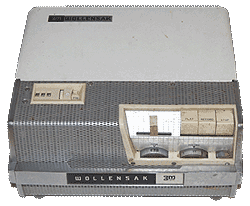 Before "Notes From The Underground with Tom Robbins", that would be months before, not minutes, there was another venture into altered state radio. It is hard to say when exactly this program of chaos and cacophony first broke through the aether (there are program guides and synapses missing, so it is difficult to reconstruct events), but we have a tape from near the beginning, if not during the big bang itself.
Before "Notes From The Underground with Tom Robbins", that would be months before, not minutes, there was another venture into altered state radio. It is hard to say when exactly this program of chaos and cacophony first broke through the aether (there are program guides and synapses missing, so it is difficult to reconstruct events), but we have a tape from near the beginning, if not during the big bang itself.
Is it the famous "Free Form Radio Program" that radio stations from New Jersey to Cicely, AK credit themselves as inventing? Is it "experimental radio"? Did the experiment produce reproducible results? It ran from about Feb to Apr 1967, and was "hosted", "orchestrated", or "wrangled" by Paul Sawyer and Jeremy Lansman, with the assistance of an unidentified but raucous and sometimes uncooperative crowd.
So, it is late at night . . . . . everyone is listening . . . . . no one is listening - except Leonard Good with his Wollensak tape recorder documenting another KRAB psychedelic hootenanny.
"Are you ready to hear it now?" (31:05)
![]() Travelling Over the Underground - Love from J Lansman and P Sawyer - KRAB Feb 12, 1967 (104:49)
Travelling Over the Underground - Love from J Lansman and P Sawyer - KRAB Feb 12, 1967 (104:49)
Recording courtesy Linda and Leonard Good, LG0004

Night Into Day with Bob Fass and guests Arlo Guthrie and Jeff Outlaw - KRAB Jul 28, 1967
May 12, 1967 - 10:30pm - NIGHT INTO DAY. This program begins the regular playing of a series of late-night musicathons from WBAI in New York. They will include live and recorded music, as well as discussion and occasional interviews. The music is mostly folk and ethnic.
The above guide description announced the start of a new program on Friday nights, during my engineering and announcing shift. Sort of like a few other programs (Jean Shepherd and Martin William's "Scope of Jazz", for instance) KRAB received and rebroadcast, this one featuring Bob Fass with a variety of characters of late-night New York, including Marshall Efron, Bob Dylan, and Arlo Guthrie. "Night Into Day" was a one-hour selection of the best of the previous week's "Radio Unnameable" programs, with Bob Fass as anchorman.
On Jul 28, 1967 the guide announced: NIGHT INTO ETERNITY: Bob Fass, of late, sleepy WBAI fame, with Arlo Guthrie and Jeff Outlaw. Here Arlo plays piano and Jeff Outlaw guitar. Over the next six months it was played and played until the cows fled to Canada.
I kept a copy, as did Nancy Keith. The best parts of both are assembled here. And, there is another, the "Philadelphia" version ("Sam. Do you remember Sam?"). If there is enough interest, I might put it up.
Recording courtesy of Nancy Keith and C Reinsch, NK0003
Seattle Symphony Review with Geoffrey Hewings - Oct 10, 1967
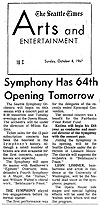 GEOFF HEWINGS comments on the Gala Opening of Oct. 9th, with "Belshazzar's Feast" and all.
GEOFF HEWINGS comments on the Gala Opening of Oct. 9th, with "Belshazzar's Feast" and all.
Shortly after starting this web site, Geoffrey Hewings was amongst the first KRAB programmers I was able to locate via a web search: His KRAB volunteer work is mentioned in his CV. Between Mar 1967 and Jul 1969, he is heard in over fifty three programs: Commentaries; readings, discussions and occasional interviews about World Affairs; morning and afternoon classical music programs; a series of readings from "The English" by David Frost and Antony Jay; and reviews of Seattle Symphony concerts.
Here is Geoff's review of the opening concert of the Symphony's 1967-68 season.
![]() Listen now - Seattle Symphony Review with Geoffrey Hewings - Oct 10, 1967 (9:38)
Listen now - Seattle Symphony Review with Geoffrey Hewings - Oct 10, 1967 (9:38)
Recording courtesy Geoffrey Hewings
NEW MAR 2021: Seepage with John Cunnick - KRAB Apr 7, 1968
10:30(or so) Seepage, a night and morning of music with John Cunnick and the Blues Busters.
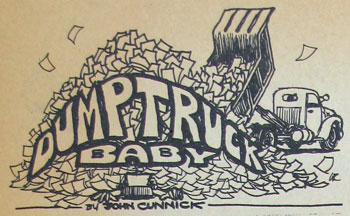 The text above (in italic) is from the Guide for Apr 7, 1968. The Guides tell us John Cunnick started a Sunday night program of "rock and roll" on Feb 18 of 1968. For the first six guide listings his name was spelled incorrectly, but on March 31st the show got a name, "Seepage", and they actually spelled his name right.
The text above (in italic) is from the Guide for Apr 7, 1968. The Guides tell us John Cunnick started a Sunday night program of "rock and roll" on Feb 18 of 1968. For the first six guide listings his name was spelled incorrectly, but on March 31st the show got a name, "Seepage", and they actually spelled his name right.
He also had a column in Helix, "Dump Truck Baby". The description for his KRAB program Aug 12, 1968 compounds the KRAB show with Helix: Seepage, John Cunnick, speeding through a Wild West jungle of folk and rock records, plays some, and talks about others while accompanying himself on mouth harp and Dump Truck.
 John's last scheduled KRAB program was in Feb 1969, after which he joined John Chambless over at KOL-FM (a commercial station).
John's last scheduled KRAB program was in Feb 1969, after which he joined John Chambless over at KOL-FM (a commercial station).
![]() Listen now - Seepage with John Cunnick - KRAB Apr 7, 1968 (17:43)
Listen now - Seepage with John Cunnick - KRAB Apr 7, 1968 (17:43)
Recording courtesy Bob West, bw1067
NEW MAR 2021: Jesse Fuller Sings and Plays - KRAB Apr 12, 1968
JESSE FULLER sings and plays the 12-string guitar, harmonica, kazoo, washboard, and fotdella*
 This appears to be from "The Greatest of the Negro Minstrels" on the Folk-Lyric label (F-126): "San Francisco Bay Blues", "Bill Bailey", "Crazy About A Woman", "C. C. Rider", and "Ninety Nine Years"
This appears to be from "The Greatest of the Negro Minstrels" on the Folk-Lyric label (F-126): "San Francisco Bay Blues", "Bill Bailey", "Crazy About A Woman", "C. C. Rider", and "Ninety Nine Years"
"Fotdella"? It is a foot operated string (bass) instrument invented by Jesse Fuller. His, the one he made, is in the Smithsonian National Museum of American History. Though it is not on display, you can see photos by clicking here.
The announcer does a pitch, and there is a copy of a poster (click on image at right) in the current program guide for "a downhome blues party" at the Masonic Temple on Apr 13. They are asking a $2.50 donation to get in. Sponsored by the Seattle Folklore Society and KRAB.
![]() Listen now - Jesse Fuller Sings and Plays - KRAB Apr 12, 1968 (17:57)
Listen now - Jesse Fuller Sings and Plays - KRAB Apr 12, 1968 (17:57)
Recording courtesy Bob West, bw1067
NEW MAR 2021: The Milky Way Mind Warp with "Baron" Rory Funke - KRAB Apr 12, 1968
The MILKY WAY MIND WARP [where] Baron Funke plays Fresh Cow's Milk and the Silver Spoon.
Here is a short example of Rory's late night psychedelic diversion. Rory briefly rants about the arrangement KRAB had with Standard Records (on 65th NE) whereby they would loan us records if we promised to take care of them. When the arrangement was established we were borrowing mostly classical and drama, but the program producers and their interests had changed.
![]() Listen now - The Milky Way Mind Warp with "Baron" Rory Funke - KRAB Apr 12, 1968 (33:34)
Listen now - The Milky Way Mind Warp with "Baron" Rory Funke - KRAB Apr 12, 1968 (33:34)
Recording courtesy Bob West, bw1067
The Service From the Seattle House of Refuge Church of God Pentecostal - KRAB Aug 18, 1968
Bishop R. J. Causey preaches and leads the congregation
Between Jun and Oct 1968, Sundays at 6:00pm KRAB would play a recording made of the morning's service. A similiar program was aired during 1975. On the right is a photograph of the House of Refuge Church of God Pentecostal, at 527 23rd Avenue, taken in the 1980s, and presented her courtesy of Martin Stallings. Click on the image for a larger, higher resolution, view. Today, the building is part of the Causey Learning Center.
Click here for another KRAB broadcast from the House of Refuge, Dec 25, 1974
Recording courtesy Bob West, BW1028
Rock Service At Saint Mark's Episcopal Church - Rec May 26, 1968; KRAB Aug 24, 1968
An unusual and, according to reports, beautiful and moving church service. With the Seattle rock trio Uncle Henry and sermon by the Very Rev. John C. Leffler, Dean of St. Mark's. Liturgical material by Dick York, Vicar to the Bay Area underground.
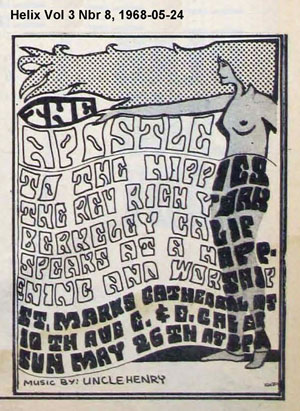
We only have 32 minutes of the 75 minute program scheduled for Aug 24, 1968. Missing is Reverend Richard York (The Apostle of the Hippies) and the sermon by Rev John C Leffler, Dean of St Mark's. The surviving portion of the Happening at Saint Mark's is a performance by the quartet* known as "Uncle Henry": Dick Stockton, guitar; Joe Mackie on bass and vocals; Marc Cutler, guitar; and Rich Condon, drums. Uncle Henry, from Bellingham, came to Seattle in Spring 1968 and appeared at a number of events including the ACLU Pot-test on Mar 24 (SFH** pg 93) and the Media Mash on Apr 21 (SFH** pg 96). The quartet played at the first two of St Mark's "Happenings in Worship" on May 26 ("The Apostle to the Hippies, Rev Richard York") and Jul 21 ("What's Your Hang-up?"), and band member Dick Stockton played alone at the third event on Sep 28 ("Blowing Your Mind").
Searching for "Uncle Henry" I found Keith Watkins writing in his blog in Feb 2012 about Richard L York:
"I heard York preach one time. He was guest at St. Mark’s Episcopal Cathedral in Seattle for a weekend in June 1968 while I was on leave in that city. On Sunday evening he led a “Happening in Worship” in the cathedral stuffed so full that people were even sitting on the chancel steps. Presiding was the 68-year-old dean of the cathedral, and the music was provided by a group named “Uncle Henry.” The Order for Evening Prayer was followed, with York, in paisley vestments preaching a breezy sermon summarizing classic Christian theology with a rather soft edge. On Tuesday night immediately following Bobby Kennedy was assassinated in Los Angeles." (https://keithwatkinshistorian.wordpress.com/2012/01/ - see comments)
Click here for an "interview" of Uncle Henry in Helix.
Click here for an article about Rev Richard L York in the Seattle Times.
Click here for Seattle Times Religion Editor Ray Ruppert's article about Saint Mark's Cathedral's 1968 youth outreach effort.
![]() Listen now - Rock Service (Uncle Henry) at St Marks Episcopal Church - KRAB Aug 24, 1968 (32:02)
Listen now - Rock Service (Uncle Henry) at St Marks Episcopal Church - KRAB Aug 24, 1968 (32:02)
* Shortly after this was posted Dick Stockton sent a message, saying that regardless of the Helix article, the tape label, and the listing in the program guide, Uncle Henry was a quartet, not a trio, and that the fourth member was Joe Mackie on bass and vocals.
**SFH = (Split Fountain Hieroglyphics, Scott McDougall)
Thanks to Tim Leffler, Glen Beebe, Dick Stockton, and Robert Force
Recording courtesy Jack Straw Foundation, M1529
Dr Fred Exner Plays Some Jazz - KRAB Nov 29, 1968 or Nov 28, 1969
COMMENTARY: FB Exner
Dr Frederick B Exner was a regular commentator on alternate Fridays through the 1960's. Superficially he contrasted radically from the other Friday night commentator, Frank Krasnowsky, but there was more to both of them than just their political affiliations. Exner was by profession a radiologist, and spoke often about the dangers of fluoridated water. His other commentaries typically reflected a kind of conservatism not currently in vogue. Searching the Seattle Times, we found a series of articles (click here) relating to the appearance of an evangelist at several public schools in Seattle. Exner objected to two schools holding assemblies at which the evangelist made comments that the "Emergency Committee for Religious Freedom" (headquartered at Exner's office in the Medical Dental Building) thought were hateful (in today's language contained "hate speech"). At a hearing about a proposed bill to limit air pollution Exner was concerned that the bill did not address "invisible" gaseous pollutants. I remember him speaking about the dangers of interrupting the flow of too many rivers with hydroelectric dams.
In the mid-1940s he had a small recording company, Exner Record (click here), and produced several classic jazz records. Despite releasing only nine 78 RPM records, Exner was described by the Seattle Times (Nov 9, 1947) as "Seattle's No 1 jazz enthusiast". Among the performers listed on Exner's record label is Lowell Richards playing tuba in the "Rainy City Jazz Band" (click here) on 5 releases (1947). Years later Lowell would be Secretary of AFM Local 76 and producer of KRAB's first jazz program, "Jazz Now" (1963-1970). Perhaps it was Lowell who suggested to Lorenzo that Exner would be good for a commentary.
Also appearing on the record labels are two addresses. The first was 509 Olive, which, as noted above, was the Medical Dental Building where Dr Exner had his office. The second address was 1320 Fifth Ave, since 1941 the location of "The Record Shop" owned by Mrs Elva Whitefield, and staffed by daughter Miss Esther Whitefied (click here), and the place to pick up a copy of the Rainy City Jazz Band's latest. At some point after 1965 the address of The Record Shop changed to 1330 Fifth Ave, and then John Erling, Jack Graves, John Collins, Charlotte Brechemin, and Mina Brechemin Person all took a turn as owner. Sometime after 1975 it moved from the Skinner Building to the Rainier Bank Tower Concourse. And in 1989 "after nearly 50 years as one of the region's most respected retailers of recorded sound" it closed (Melinda Bargreen in the Seattle Times Jun 15, 1989).
My curiosity about the addresses on Exner's 78's led me to The Record Shop at 1320 Fifth Avenue, and to the discovery of the three women who built a record business on Fifth Avenue, that, fifty years later, was mourned in its passing. And yet, in the articles about the passing of Fifth Avenue Records, Charlotte Brechemin and Mina Brechemin Person, there is no mention of the Whitefields. Like so many other stories, it is the final act that gets remembered, but certainly in this case the first act also needs to be respected: The work of a divorced mother and her daughter opening a business just a month before Pearl Harbor, one that eventually became an important source of recorded music in Seattle.
|
Sometimes for his KRAB commentary Dr Exner would take a break from his favorite subject, fluoridation, bring some of his 78 RPM records up to the station and talk about music and musicians.
This recording comes from the NFCB collection at the University of Maryland. On either the tape box or in NFCB program offering catalogs archive staff appear to have found this program described as Exner's "Thanksgiving commentary". Aligning Exner's scheduled commentaries (on alternate Fridays) with Thanksgiving we were able to find only two possible dates for it's original airing: either Nov 29, 1968 or Nov 28, 1969.
![]() Listen now - Dr Fred Exner Plays Some Jazz - KRAB Nov 29, 1968 or Nov 28, 1969 (26:32)
Listen now - Dr Fred Exner Plays Some Jazz - KRAB Nov 29, 1968 or Nov 28, 1969 (26:32)
Recordings courtesy University of Maryland Special Collections and University Archives, collection of the National Federation of Community Broadcasters (NFCB) - umd-bcast-072212-0001
Go to KRAB music programming of the |
|||||
If you possess any souvenirs (program guides, tapes, or photos) or have a story about your experience with KRAB you are willing to share, please email archive@krabarchive.com


